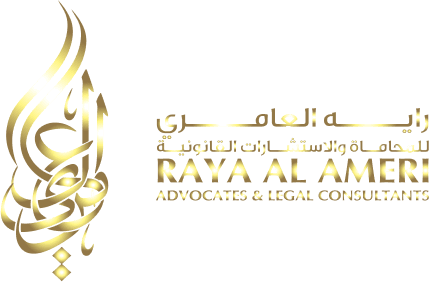Safeguarding Trust and Security: Understanding Forgery Law in the UAE
Forgery, a deceptive act that undermines the foundation of trust and security, is a serious offense in the United Arab Emirates (UAE). As a lawyer practicing in the UAE, it is crucial to comprehend the intricacies of forgery law in order to protect the integrity of legal and financial systems. In this article, we will explore the various facets of forgery law in the UAE, examining its types, legislation, penalties, investigative procedures, defenses, and international cooperation. Through anecdotes and examples, we will shed light on the significance of this law in maintaining societal trust and upholding justice.
Types of Forgeries
Forgery takes various forms, each with its own implications and consequences. Document forgery, for instance, involves the falsification of official documents such as passports and identification cards. Counterfeiting banknotes, cheques, or other financial instruments is another common form of document forgery that wreaks havoc on the economy. Signature forgery, on the other hand, entails the unauthorized signing of someone else’s name or forging signatures on contracts or legal documents. These acts not only violate the rights of individuals but also disrupt the functioning of institutions and erode public confidence.
Legislation and Penalties
In the UAE, forgery is addressed by the provisions of the Penal Code, which outlines the legal framework and penalties for such offenses. Article 217 pertains to the forgery of private documents. Additionally, Article 218 specifically addresses the counterfeiting of banknotes or coins. Violators of forgery laws can face severe punishments, including imprisonment, hefty fines, and other penalties such as the confiscation of forged documents or the closure of counterfeit production facilities. These penalties serve as deterrents and reinforce the gravity of forgery offenses.
Investigative Procedures and Legal Proceedings
The process of addressing forgery offenses involves multiple stages, from reporting incidents to the conclusion of legal proceedings. Upon discovering a forgery, individuals or organizations must promptly report the incident to law enforcement agencies. These agencies play a crucial role in investigating forgery cases, gathering evidence, and identifying the culprits. During the investigative process, suspects may be arrested, detained, and questioned to aid in the collection of evidence. Subsequently, the prosecution and trial process commences, wherein the alleged offenders face the charges brought against them.
Defenses and Mitigating Factors
In forgery cases, defendants may employ various defenses to challenge the allegations. Lack of intent, for instance, can be argued if the accused can demonstrate that they did not knowingly engage in the forgery. Mistake of fact, where the accused was unaware that the document or signature was forged, can also be used as a defense. Additionally, cases involving duress or coercion can potentially offer a defense if the accused can provide evidence that they were compelled to commit the forgery under threat or pressure. Furthermore, defendants can present a defense of insufficient evidence if they believe that the prosecution has failed to prove their guilt beyond a reasonable doubt. Voluntary disclosure or cooperation, wherein the accused takes responsibility for their actions and cooperates with the authorities, can also be considered as a mitigating factor during sentencing.
I. Forgery of Currency or Government Securities:
Article 204 of the Penal Code has been replaced by Article 1 of Federal Decree-Law Cybercrimes Number 7 of 2016. It addresses the forgery, counterfeiting, or falsifying of banknotes, coins, or government securities. Individuals involved in such activities, either directly or through intermediaries, are subject to life or temporary imprisonment, along with a fine of not less than UAE Dirhams two hundred.
II. Electronic Forgery:
In the 21st century, forgery has evolved, leading to the need for new laws to combat cybercrimes and electronic forgery. The Cybercrime Law, which supersedes the Prevention of Information Technology Crimes law, incorporates provisions from the Penal Code and other relevant laws. Article 4 of the Cybercrime Law permits the temporary detention of individuals who forge government documents recognized in an Information System. For other documents, the presence of criminal intent during forgery may result in imprisonment, a fine, or both. The law also addresses the use of forged documents, as well as moral forgery. According to Article 14 of the Federal Decree-Law No. 34 of 2021 on Combating Rumors and Cybercrimes, “whoever falsifies any of the electronic documents of the Federal or Local Government, or federal or local public authorities or organisations” shall be sentenced to temporary imprisonment and/or a fine ranging between Dh150,000 and Dh750,000.
Article 14 of the Cybercrime Law also makes the forgery or imitation of credit cards, debit cards, or any electronic payment method a criminal offense, punishable by imprisonment, a fine of not less than UAE Dirhams five hundred but not exceeding UAE Dirhams two thousand, or both.
III. Burden of Proof:
According to Article 1 of the Law of Evidence, the burden of proof lies with the plaintiff, who must establish the forgery. The defendant’s role is to disprove the plaintiff’s claims. Article 23 of the Law of Evidence places the burden on the opponent to prove their lack of knowledge of any forgery and demonstrate that the challenged document was indeed issued by the challenger or predecessor-in-title.
Formal documents, including official or governmental ones, can be challenged for forgery, specifically contesting the authenticity of signatures, seals, writings, or fingerprints. However, this requirement does not apply to informal documents. According to Article 8 of the Penal Code, unless formal writing is proven to be forged, it holds probative force regarding the matters recorded by its author within the scope of their duties or in relation to acts performed by parties in their presence.
IV. Defenses Forgery:
Defense Forgery involves the creation of fake and fraudulent documents. Nonetheless, the criminal intention behind the act may still be considered an offense under UAE criminal law. Even using a photocopy of someone’s signature can be considered a valid act of forgery.
One common defense used by criminal lawyers in Dubai is the lack of intention to commit forgery. In cases of forgery, the intention to deceive or commit forgery is crucial, and the absence of such intent may negate the offense. Any individual facing forgery charges in the UAE has the right to appoint a criminal lawyer who can present strong legal arguments and supporting documentation to prove their innocence before the relevant court authorities.
V. Challenge for Forgery:
If a document appears to be forged at first sight, the court may declare it invalid. Additionally, parties involved in litigation have the right to challenge any document for forgery at any stage of the proceedings by submitting a memorandum to the court. The memorandum should outline the allegations of forgery along with supporting evidence and details of the investigation. If the court finds the allegations convincing, it may order further investigation. The party accused of presenting a forged document can also intervene in the investigation. Once a challenge for forgery is made, the document in question is considered unfit for execution, aside from any interim measures. Articles 28-32 of the Law of Evidence provide provisions related to the challenge of forgery. If the court dismisses the challenge or deems the challenger forfeited from proving their allegations, the challenger may be liable to pay a fine ranging from UAE Dirhams five hundred to three thousand. However, even if some part of the allegations is proven true and the document is determined to be forged, the challenger is freed from any obligations.
VI. Judgments:
In most cases, denial is sufficient as a defense for customary documents unless a challenge for forgery is made, contesting the authenticity of the signature, seal, writing, or fingerprint. Thus, the individual relying on the document must prove its credibility through the involvement of an attorney, while the opponent must attempt to disprove it. While denial alone is typically sufficient, the courts recognize the importance of “mens rea” (criminal intent) in forgery cases, where the offense arises from the intention to alter the truth in the document. Articles 23(1) and 11 of the Law of Evidence state that a mere denial is enough, and official or customary documents may be challenged for forgery while specifically contesting the authenticity of the signature, seal, writing, or fingerprint. The burden of proof lies with the opponent to establish the authenticity of their claimed signature. The Court of Cassation has ruled that there is no need to subject the person denying the forgery to questioning regarding the attributed signature, under the law.
VII. Punishment:
According to Article 217 of the Penal Code, individuals involved in the forgery of official documents, particularly the use of forged copies, can face imprisonment for a period not exceeding five years. This includes those who knowingly use forged copies of official documents, understanding their fraudulent nature. The severity of the punishment is aimed at deterring such acts and protecting the integrity of official documentation.
It is important to note that the specific penalties and fines may be subject to change or amendment based on the prevailing laws and regulations of the UAE. Therefore, it is advisable to consult the most up-to-date legal resources or seek professional legal advice to ensure accurate and current information regarding forgery-related offenses and their associated punishments in the UAE.
Forgery is a crime that erodes trust, undermines institutions, and compromises security. In the UAE, forgery law plays a crucial role in maintaining societal trust and upholding justice. Understanding the various types of forgery, legislation, penalties, investigative procedures, defenses, and international cooperation is essential for lawyers practicing in the UAE. By actively enforcing forgery laws and staying vigilant against such offenses, legal professionals contribute to safeguarding the integrity of legal and financial systems, fostering a climate of trust and security in the UAE.
To obtain legal advice or information, please reach out or contact us at +971 4 578 6050. Our team of experts is available to assist you with your legal inquiries.

